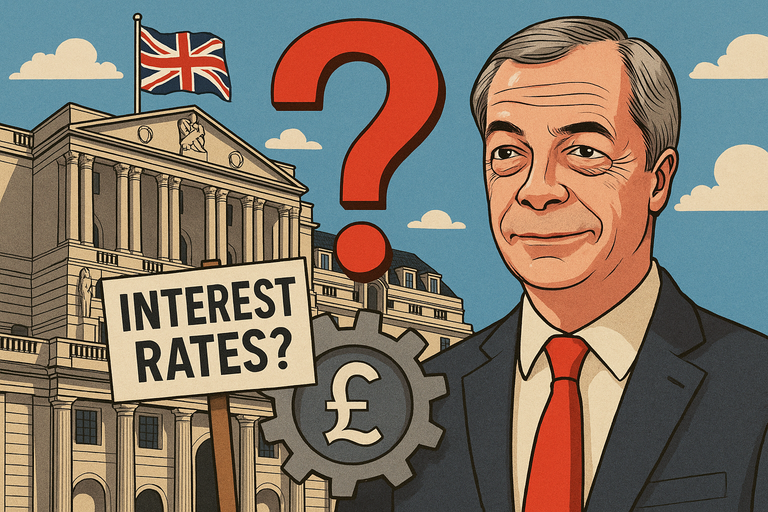Do Politicians Need to Regain Control of Interest Rates? Farage and the Bank of England's Future
Nigel Farage's Reform UK party has been making waves in recent weeks with its radical proposals to transform the way the Bank of England runs the UK economy. At the centre of their 2024 manifesto is a pledge to end the Bank's centuries-long independence and fundamentally transform its bond business.
Maybe slightly out of character for Reform, this represents a repoliticising of the B of E
The Case for Reform: Saving Billions...?
Farage and his policy makers argue that the current system privileges banks favorably over taxpayers. Reform UK maintains that the Bank's quantitative easing (QE) program – whereby it has bought almost $i trillion of government debt in recent years – disproportionately favors commercial banks in that it permits them to earn interest on keeping said assets. They project that to end these interest payments would save the government £35 billion annually.
On the surface, this sounds a sensible fiscal move.
However, critics argue that this move would be effectively back-door renegotiating the terms of QE and discrediting the UK's financial reputation. QE was introduced to stabilize the economy after the global financial crisis and then the COVID-19 crisis. Any attempt to open these terms for negotiation would make nervous investors even more nervous, as is usual when government increases its level of interference in financial markets.

Bank Independence: A Protection Against Political Interference
Since the Bank of England was given the ability to set interest rates by Gordon Brown in 1997, the UK has enjoyed low and stable inflation. This monetary policy depoliticisation is largely credited with enhancing the credibility of the Bank along with distancing it from short-term political pressures at the ballot box.
Economists argue that politicians would be inclined to maintain interest rates artificially low around election times, in a bid to boost consumer spending and confidence. This would yield short-term gains at the cost of inflation, volatility, and loss of investor confidence. The entire essence of monetary independence was to make the economy resilient to this type of short-termism.
Final thoughts...
I'm not necessarily an out and out fan of free markets, but in this case I think independent Bank of England has worked pretty well for the UK economy over the years.
Moreover attempting to solve the problem of too much interest on government debt by more government interference seems like a bit of a contradiction!
https://www.reddit.com/r/EU_Economics/comments/1mhedjm/do_politicians_need_to_regain_control_of_interest/
This post has been shared on Reddit by @davideownzall through the HivePosh initiative.
Congratulations @revisesociology! You have completed the following achievement on the Hive blockchain And have been rewarded with New badge(s)
Your next target is to reach 220000 upvotes.
You can view your badges on your board and compare yourself to others in the Ranking
If you no longer want to receive notifications, reply to this comment with the word
STOPCheck out our last posts: